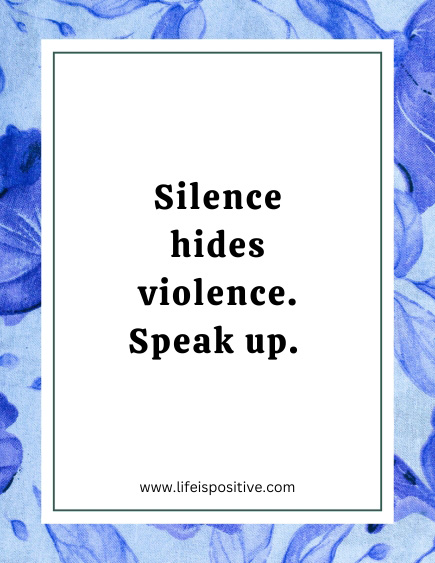|
Getting your Trinity Audio player ready...
|
When we think of trauma, major life events like accidents or natural disasters often come to mind.
But did you know there are many hidden causes of trauma that can impact us just as deeply? Understanding these less obvious triggers can help us recognize and manage their effects on our lives.
In this post, we’ll dive into eight hidden causes of trauma that might surprise you.
By bringing these issues to light, we hope to help you better understand and navigate the complexities of trauma in a more informed and constructive way.
1. Emotional Neglect in Childhood
One of the most overlooked causes of trauma is emotional neglect during childhood.
It’s not about obvious abuse but rather the absence of emotional support and nurturing. Kids need affection, attention, and validation to develop a healthy sense of self. When these needs go unmet, it can lead to deep feelings of worthlessness and insecurity.
Emotional neglect can be subtle, often masked by meeting physical needs. Parents might be there in the body but not in the spirit, creating long-term psychological effects that linger into adulthood.
Read: How To Overcome Abandonment Issues From Childhood
2. Bullying and Social Exclusion
Bullying is another hidden cause of trauma that can leave deep, lasting scars. It’s not just about physical violence; verbal and emotional bullying can be just as harmful.
Being ridiculed, humiliated, or socially excluded can take a huge toll on your self-esteem and mental health.
And it’s not just a childhood issue. Adults can experience bullying at work or in social circles, leading to anxiety, depression, and even PTSD.
It’s crucial to recognize the impact of bullying so we can address and heal from this often-overlooked form of trauma.
Read: How Bullying Affects Mental Health
3. Witnessing Domestic Violence
Even if a child or adult isn’t directly abused, witnessing domestic violence can be a significant source of trauma.
Watching a loved one get hurt creates deep feelings of fear, helplessness, and anxiety. This type of trauma is especially tricky because it often flies under the radar.
The effects of seeing domestic violence can show up in all sorts of ways, like having trouble forming healthy relationships, dealing with trust issues, and struggling with emotional ups and downs.
It’s important to recognize this hidden trauma and find the right support to heal.
4. Medical Procedures and Illness
Going through medical procedures or managing a chronic illness can be seriously traumatic, especially if it’s painful or scary.
Feeling like you’ve lost control over your body and health can cause major emotional distress. Kids are especially vulnerable to medical trauma, but adults aren’t immune either.
This kind of trauma can lead to anxiety, a fear of medical settings, and even avoiding necessary medical care, which can make health issues worse.
It’s important to recognize and address this form of trauma to ensure better overall well-being.
5. Financial Instability
Financial instability is a hidden source of trauma that often gets overlooked. The stress of not knowing how you’ll pay the bills or provide for your family can be overwhelming.
This constant worry can lead to chronic anxiety, depression, and a deep sense of helplessness. It’s not just about the lack of money; it’s the uncertainty and fear that come with it.
Recognizing this type of trauma is crucial so individuals can seek support and develop effective coping strategies.
Read: Learn How To Crush Your Financial Fear
6. Cultural and Racial Discrimination
Experiencing discrimination based on race, ethnicity, or culture can be deeply traumatic.
This kind of trauma often comes from repeated incidents of bias, microaggressions, and systemic inequality. Over time, these experiences can chip away at your self-esteem and leave you feeling isolated and angry.
Cultural and racial trauma is often made worse by a lack of understanding or support from those who haven’t shared the same experiences.
It’s crucial to acknowledge and validate these feelings to start the healing process.
7. Relationship Breakdowns
Breakups, divorces, and the end of significant relationships can sneakily cause a lot of trauma.
The heartbreak of losing someone close can be crushing, bringing on waves of rejection, abandonment, and profound sadness.
But it’s not just romantic relationships that can leave scars. Friendships and family ties can also break down in ways that hit hard emotionally.
During these tough times, it’s crucial to give yourself space to grieve and reach out for support.
Read: How Breaking Toxic Soul Ties Can Set You Free
8. Natural Disasters and Environmental Changes
We usually picture natural disasters like earthquakes and hurricanes as clear sources of trauma, but broader environmental changes can also hit hard.
Living through the chaos after a disaster, losing your home, or facing ongoing threats like pollution can seriously stress you out.
The stress from environmental changes often gets worse because of the helplessness and uncertainty about what’s next. It’s really important to acknowledge how these events affect you emotionally to start the healing process.
Final Thoughts: Causes Of Trauma
Understanding the hidden causes of trauma is key to recognizing and dealing with the emotional pain many of us carry around.
While we often think of big events as the main sources of trauma, those subtle, overlooked causes can be just as powerful. By recognizing the different ways trauma shows up, we can better support ourselves and others on the healing journey.
Read: How Subconscious Healing Can Heal
Whether it’s emotional neglect, bullying, witnessing violence, or any other less obvious cause, identifying the signs and getting help is the first step toward recovery.
Trauma is complex, but with awareness and compassion, we can move toward healing and resilience.
Remember, it’s completely okay to seek help and share your experiences. Healing from trauma is a journey, and understanding its hidden causes is an essential part of that path.
For more empowering content, connect with our vibrant community here ➡️ Social Media.



